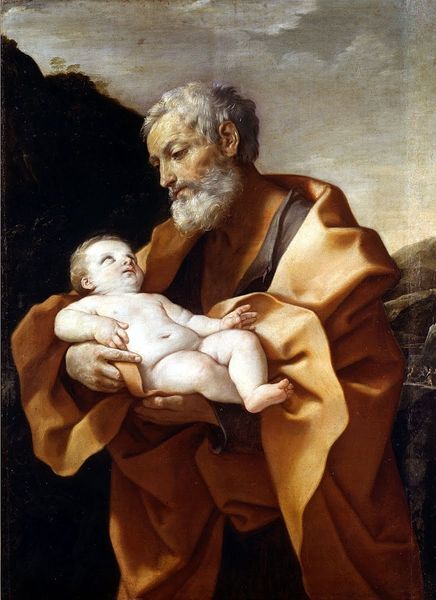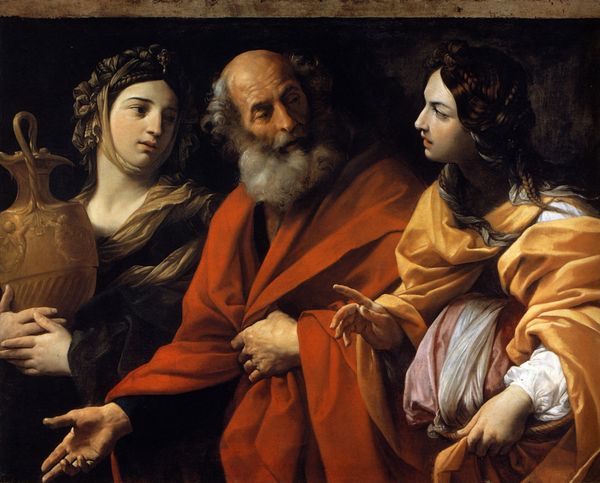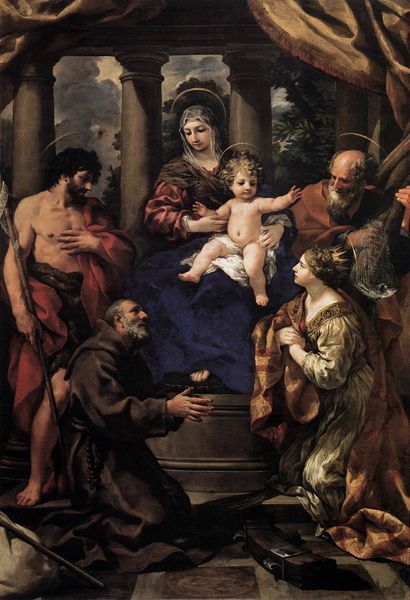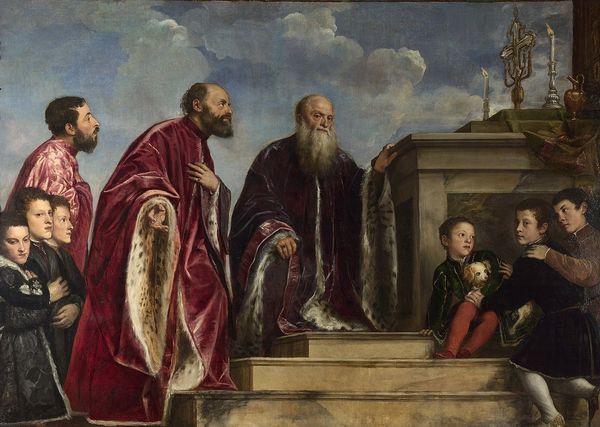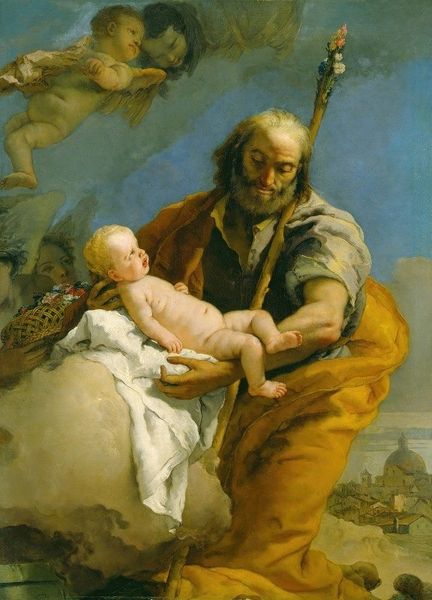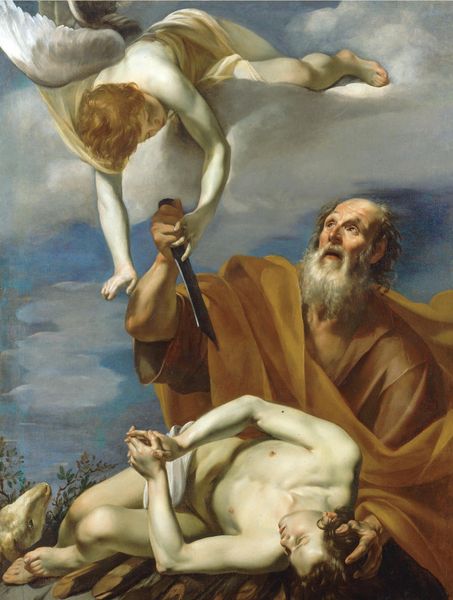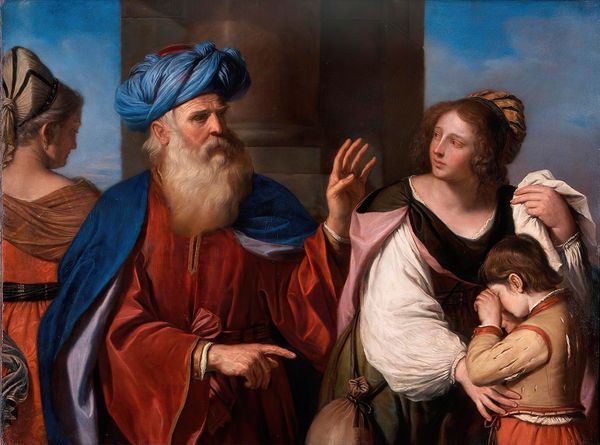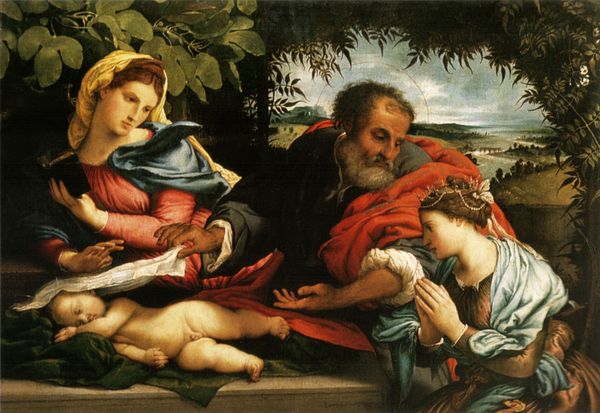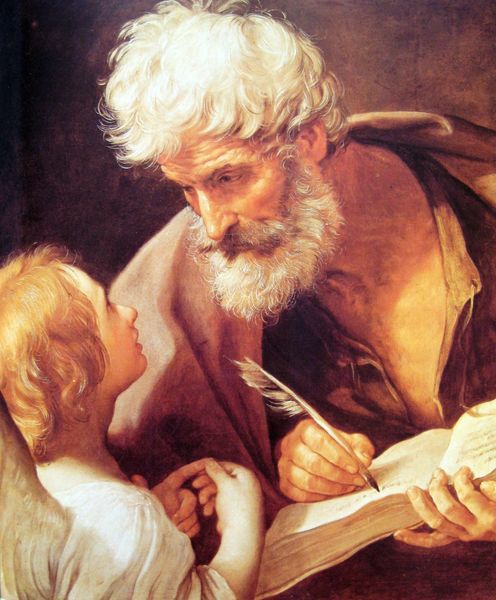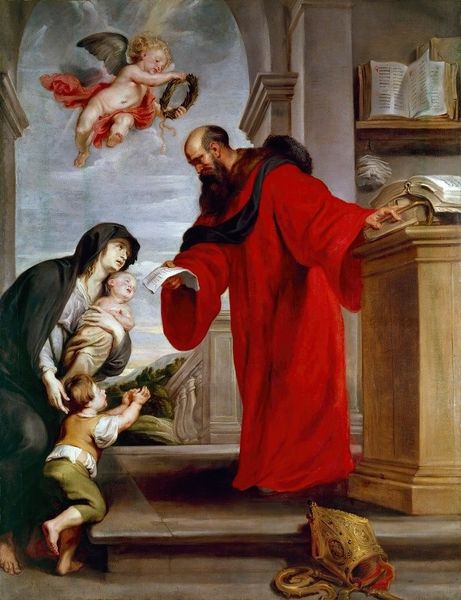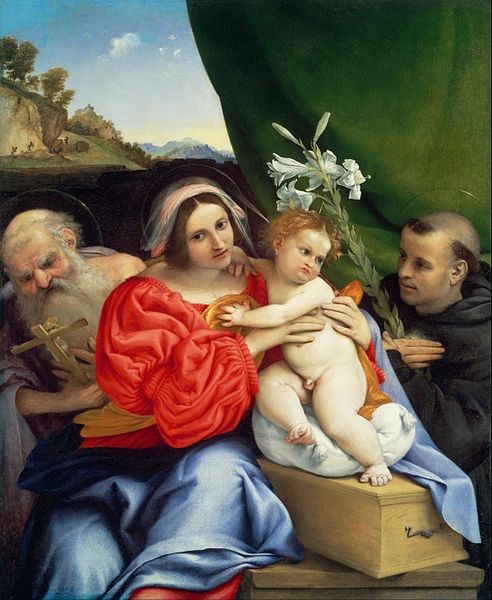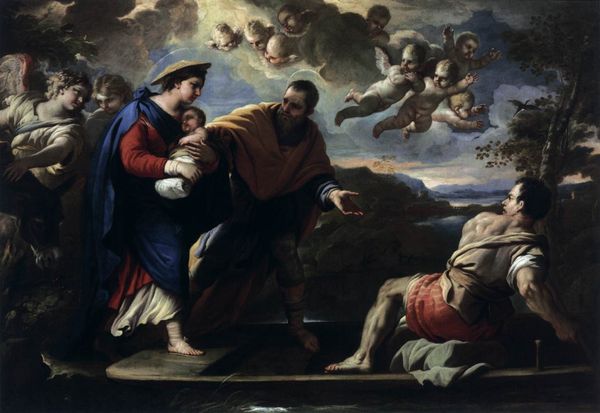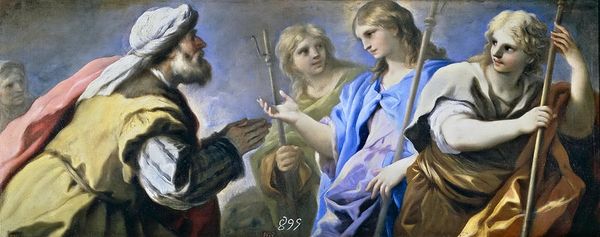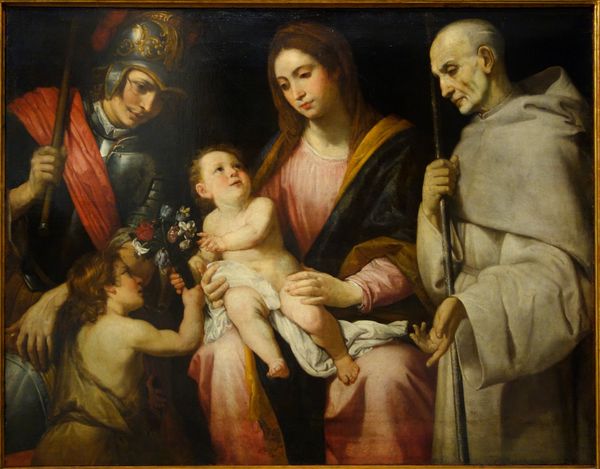
painting, oil-paint
#
portrait
#
allegory
#
baroque
#
painting
#
oil-paint
#
oil painting
Copyright: Public Domain: Artvee
Curator: Guercino's oil on canvas, “God the Father and Angel,” painted around 1620, depicts a contemplative God gazing upon an infant angel who holds a globe surmounted by a cross. Editor: Immediately, I'm struck by the tenebrism—the intense contrast between light and dark. It really sculpts the figures, creating a sense of drama but also, oddly, of intimacy. The chromatic scheme reinforces a serious and grave mood in the image. Curator: Absolutely. Guercino masterfully uses light to guide our gaze. Consider the globe. It represents earthly power but is presented as a child's plaything; a representation of power is rendered soft. Also, think of what that cross means for this angel carrying a world toward light. Editor: Visually, there's also the interplay of textures. The wispy beard against the smoothness of the angel's skin; the rough fabric of God's robe in opposition to the polished globe. It really heightens the sensuality, or rather the invitation of feeling. Curator: And each is fraught with symbolic meaning. God's beard, almost blinding in its brightness, connects to wisdom, time, and divine knowledge, contrasted to that cherubic, infantile softness. Editor: It makes you question the meaning of "divine" because this is also the Renaissance tradition rendering of physical beauty that almost softens God. He does not radiate; he almost contemplates as an equal with the baby. The color pallet underscores that human scale and accessibility. Curator: His downward gaze is crucial here. He's not aloof or detached but profoundly concerned. He bears that connection across aeons. Editor: Which echoes, subtly, in the compositional echoing of the sphere-globe in the elder figure's cranium, both also reflecting similar gradations in tonal composition as well. There is a visual harmony of mind and world on display. Curator: In its visual structure, "God the Father and Angel" transmits a timeless narrative, making divine mysteries accessible and poignant, especially with its invitation toward the idea of generational exchange of knowledge and concern. Editor: I agree completely. It's the convergence of materiality, form, and subject that creates this resonant visual experience, prompting our thoughts, as we depart this beautiful tableau.
Comments
No comments
Be the first to comment and join the conversation on the ultimate creative platform.
